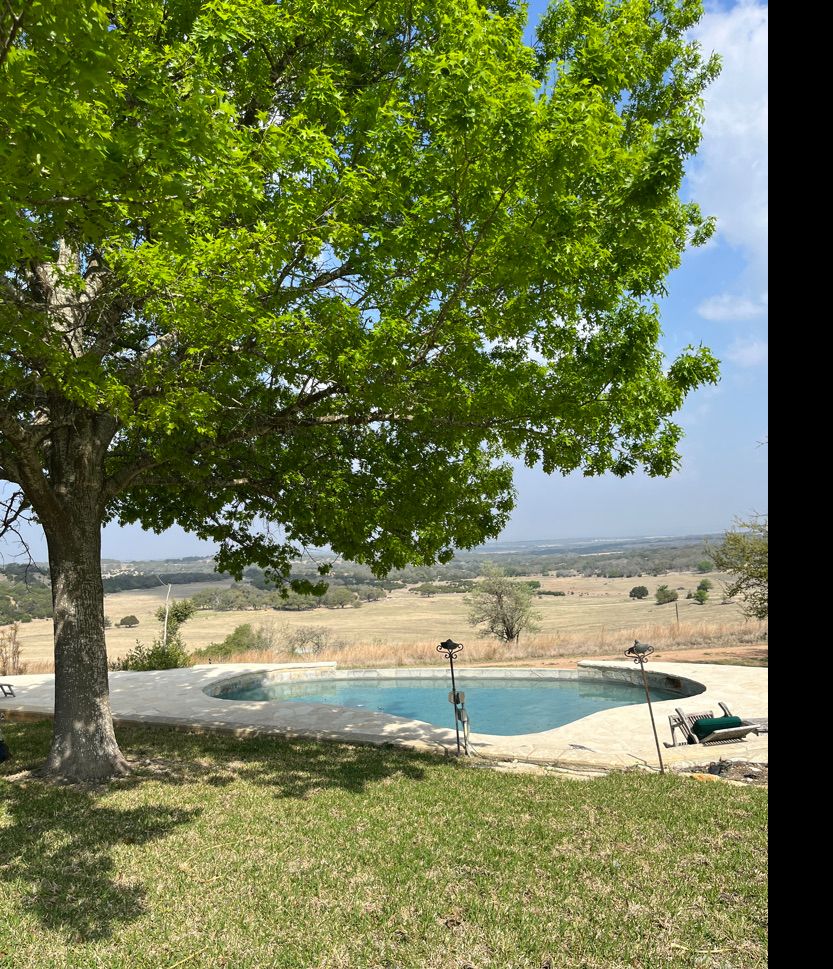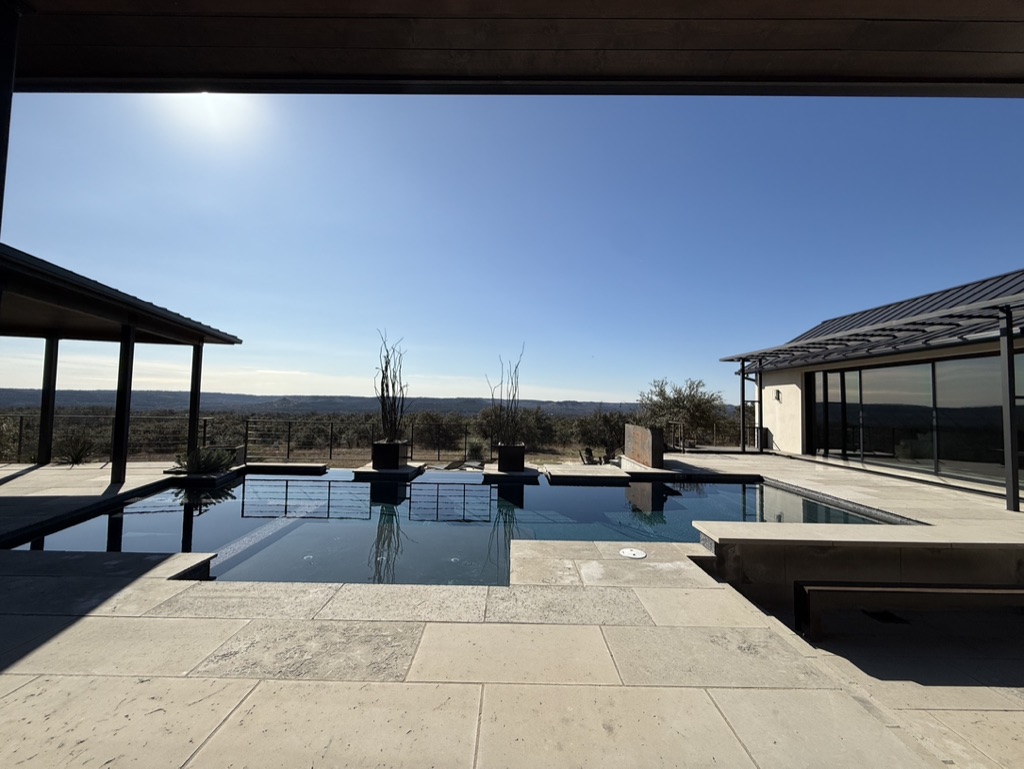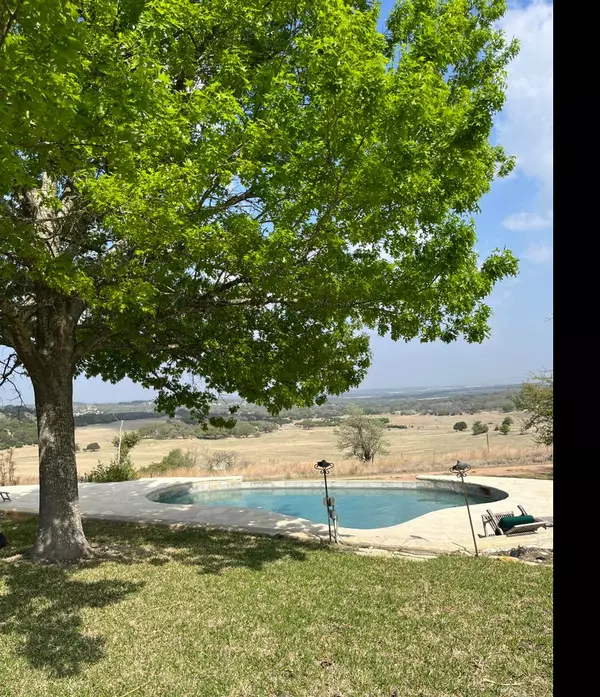Concrete Cancer: What Central Texans Need to Know

It's a hot topic for affected homeowners, and one I'd like my clients to avoid if possible: concrete "cancer" in swimming pools that can cause irreparable damage. I totok a recent webinar hosted by Paul Guerrero of Allstate Insurance, featuring Dave Wenholz, Austin’s construction defects attorney, and engineer John McIntyre. The information below was gleaned from their presentation.
Understanding Concrete Cancer in Pools
Concrete cancer, also known as alkali-silica reaction (ASR), occurs when certain elements in the concrete mix react with water, causing the concrete to crack and deteriorate over time. The Austin area is particularly prone to this issue because local aggregates used in pool construction contain minerals that are more reactive. While this sounds alarming, the good news is that with the right information, buyers and sellers can make informed decisions and avoid unpleasant surprises.
Why Shotcrete Is More Susceptible Than Gunite
In pool construction, two primary methods are used for shaping the concrete shell: gunite and shotcrete. While both involve spraying concrete onto a rebar framework, shotcrete is applied in a wet mix, which makes it more susceptible to issues like concrete cancer. Gunite, applied in a dry mix and mixed with water at the nozzle, generally has better long-term durability. If you're purchasing a home with a pool, knowing which method was used can provide insight into potential risks.
What Pool Owners Need to Know by Age
Pools Less Than 2 Years Old: If your pool was built in the past two years, you're in luck. Changes in material regulations have significantly reduced the likelihood of concrete cancer. Regular maintenance and inspections will help ensure your pool stays in great shape.
Pools 2-5 Years Old: This age range is considered the most uncertain. Many pools built during this period may have used materials that are prone to ASR. While not every pool will develop issues, it’s wise to stay vigilant and consider testing if concerns arise or if selling.
Pools Older Than 5 Years: If your pool is more than five years old and shows no visible cracks or signs of deterioration, it’s likely to remain sound. Most pools with concrete cancer will exhibit symptoms within the first five years.
Testing Options: What Works and What Doesn’t
The most definitive way to diagnose concrete cancer is through a petrographic analysis, a specialized core sample lab test that can cost between $8,000 and $10,000. The fastest core sampling option is the 16-day test, but it has a 50% rate of false positives, making it less reliable.
For the most accurate results, the 2-year test is the gold standard—but understandably, buyers and sellers usually cannot wait that long during a transaction. If you’re concerned, working with an experienced real estate advisor who understands these nuances can help you navigate the process smoothly.

Strategies for Buyers and Sellers
For Buyers: Ask for detailed documentation about the pool’s construction, including the method used (gunite vs. shotcrete) and the builder’s warranty. If the pool falls into the 2-5 year range, consider negotiating a holdback or warranty provision to address potential future issues.
For Sellers: Proactively providing records of your pool’s construction and any maintenance can instill confidence in buyers. If your pool is in the suspect age range, consider getting a professional inspection to preempt concerns and smooth the transaction.
For Both: Collaborate with professionals who understand the complexities of pool construction and real estate. Whether you’re buying or selling, having a knowledgeable advisor can make all the difference in ensuring a successful and stress-free experience.
Navigating pool ownership doesn't have to be intimidating. With the right information and the right team, you can enjoy your pool with confidence. If you have questions or want to discuss your real estate goals, feel free to reach out—I’m here to help you make informed decisions every step of the way. For expert legal assistance with concrete cancer-related issues, visit yourtexasfoundationattorney.com.
Understanding Concrete Cancer in Pools
Concrete cancer, also known as alkali-silica reaction (ASR), occurs when certain elements in the concrete mix react with water, causing the concrete to crack and deteriorate over time. The Austin area is particularly prone to this issue because local aggregates used in pool construction contain minerals that are more reactive. While this sounds alarming, the good news is that with the right information, buyers and sellers can make informed decisions and avoid unpleasant surprises.
Why Shotcrete Is More Susceptible Than Gunite
In pool construction, two primary methods are used for shaping the concrete shell: gunite and shotcrete. While both involve spraying concrete onto a rebar framework, shotcrete is applied in a wet mix, which makes it more susceptible to issues like concrete cancer. Gunite, applied in a dry mix and mixed with water at the nozzle, generally has better long-term durability. If you're purchasing a home with a pool, knowing which method was used can provide insight into potential risks.
What Pool Owners Need to Know by Age
Pools Less Than 2 Years Old: If your pool was built in the past two years, you're in luck. Changes in material regulations have significantly reduced the likelihood of concrete cancer. Regular maintenance and inspections will help ensure your pool stays in great shape.
Pools 2-5 Years Old: This age range is considered the most uncertain. Many pools built during this period may have used materials that are prone to ASR. While not every pool will develop issues, it’s wise to stay vigilant and consider testing if concerns arise or if selling.
Pools Older Than 5 Years: If your pool is more than five years old and shows no visible cracks or signs of deterioration, it’s likely to remain sound. Most pools with concrete cancer will exhibit symptoms within the first five years.
Testing Options: What Works and What Doesn’t
The most definitive way to diagnose concrete cancer is through a petrographic analysis, a specialized core sample lab test that can cost between $8,000 and $10,000. The fastest core sampling option is the 16-day test, but it has a 50% rate of false positives, making it less reliable.
For the most accurate results, the 2-year test is the gold standard—but understandably, buyers and sellers usually cannot wait that long during a transaction. If you’re concerned, working with an experienced real estate advisor who understands these nuances can help you navigate the process smoothly.

Strategies for Buyers and Sellers
For Buyers: Ask for detailed documentation about the pool’s construction, including the method used (gunite vs. shotcrete) and the builder’s warranty. If the pool falls into the 2-5 year range, consider negotiating a holdback or warranty provision to address potential future issues.
For Sellers: Proactively providing records of your pool’s construction and any maintenance can instill confidence in buyers. If your pool is in the suspect age range, consider getting a professional inspection to preempt concerns and smooth the transaction.
For Both: Collaborate with professionals who understand the complexities of pool construction and real estate. Whether you’re buying or selling, having a knowledgeable advisor can make all the difference in ensuring a successful and stress-free experience.
Navigating pool ownership doesn't have to be intimidating. With the right information and the right team, you can enjoy your pool with confidence. If you have questions or want to discuss your real estate goals, feel free to reach out—I’m here to help you make informed decisions every step of the way. For expert legal assistance with concrete cancer-related issues, visit yourtexasfoundationattorney.com.
Categories
Jill Powell
Advisor, REALTOR®, TRRS, Certified Residential Appraiser | License ID: 754678


